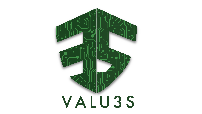Çalıştaylar




PCR Tabanlı Moleküler Tanı Süreçlerinde Robotik Uygulamalar (invitRO)
Yerli Altı Eksen Endüstriyel Robot Ar-Ge Çalışmaları Çalıştayı (MetalG)
Robotik Eklemeli İmalat Uygulamaları Çalıştayı (WAAM)
Verification and Validation Methods for Robotic Systems
26 Temmuz - 1. Seans (11:00 - 12:30)
26 Temmuz - 2. Seans (13:30 - 15:30)
27 Temmuz - 3. Seans (10:30 - 12:30)
27 Temmuz - 3. Seans (10:30 - 12:30)
Özet
Bu çalıştayın amacı, mikrobiyoloji laboratuvarlarında gerçekleştirilen PCR tabanlı moleküler tanı süreçlerinin robotik hale getirilmesi üzerine gerçekleştirilen Invitro Robotik Laborant projesinin tanıtımını, yapılan ulusal Ar-Ge çalışmalarını ve elde edilen teknolojik kazanımların paylaşılmasını sağlamaktır.
Çalıştay detaylarına bağlantıya tıklayarak ulaşılabilirsiniz.
Özet
Bu çalıştayın amacı, yerli endüstriyel robotun tasarımı ve kontrolü konusunda yapılan Ar-Ge çalışmaları ve elde edilen teknolojik kazanımların paylaşımını sağlamaktır.
Çalıştay detaylarına bağlantıya tıklayarak ulaşılabilirsiniz.
Özet
Bu çalıştayın amacı robotik eklemeli imalat uygulamaları hakkında ulusal ve uluslararası çalışmaları aktarmak ve eklemeli imalatın robotik, kaynak, malzeme konularındaki problemler, uygulama alanları, araştırma alanları hakkında bilgi paylaşımında bulunmaktadır.
Çalıştay detaylarına bağlantıya tıklayarak ulaşılabilirsiniz.
Özet
Manufacturers of automated systems and the manufacturers of the components used in these systems have been allocating an enormous amount of time and effort in the past years developing and conducting research on automated systems. The requirement of a faster and more efficient production process emerges the usage of more robots in factories in various fields such as automotive, electronic, food, etc. Industrial robots are involved in tasks such as assembly, painting, welding, quality control etc. They have showed their success for performing iterative jobs with higher performance. In this new era, moving from automation to autonomy will also bring new opportunities for industrial robots. This new autonomous robots percept the environment, makes a plan and act depending on the perception. This autonomy also brings some barriers for widespread application of these new robotic systems. The robotic systems should be trusted before usage. Therefore, developing new verification & validation methods for the safety and security of new autonomous robots is critical for their wider application in the shopfloor.
This workshop is organized under VALU3s project (https://valu3s.eu/) that is supported under H2020 ECSEL. It is intended to present the current status of V&V studies for Robotic Systems.
You can reach workshop details in the link.
